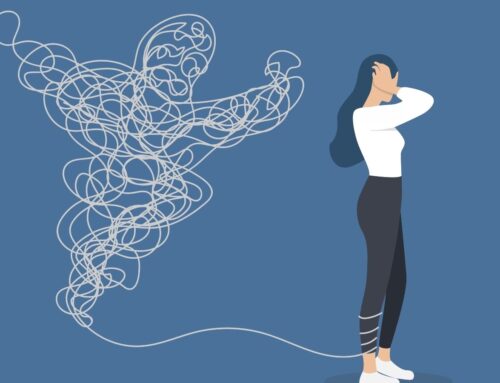Did someone say that there would be an end.
An end. Oh, an end to love and mourning?
– May Sarton
Seeking love and connection is a basic human need, driving us to form and maintain relationships. If you’ve ever loved, you’ve also likely experienced loss, one of our most enduring challenges. In my life so far, I’ve experienced various losses and changes, some more tolerable than others. The most painful was losing my dog, Pandu. He came into my life when I was in high school, a German Shepherd pup who fit into my hands, and left the year I moved overseas to pursue my doctorate.
When Pandu passed away, I could not sleep. I felt a profound emptiness and struggled to stay in my home. I felt compelled to leave and rid myself of his belongings, wishing it was just a bad dream. Though I knew this loss was coming, facing its reality was incredibly painful. This coincided with my move to the US a few months later. Reflecting on that period, I still feel the pain associated with the loss, but its intensity has lessened. I’m grateful for the support system that helped me process and navigate that difficult transition phase.
Experiencing loss can take many forms, such as the death of a loved one, the end of a relationship or friendship, leaving your childhood home, adulting or recovering from illness or surgery. Loss and transitions often go hand in hand, as transitions mark significant changes in our lives, including births, deaths, moving to a new place, or starting a new job. Each transition requires us to let go of the past and make room for something new, a process often accompanied by grieving and mourning. For me, Pandu’s death marked the beginning of my life in a foreign country. To fully embrace this new life, I had to mourn the loss of my old one. In this post, I want to share some ways to cope with loss and transitions in life.
Lesson 1: Let Yourself Mourn the Loss
Often, we want to quickly move on from a loss to avoid the pain of grieving. While there might always be something else to focus on, unacknowledged feelings often catch up with us eventually. For instance, many people cope with breakups by immediately entering a new relationship, avoiding the pain associated with the loss. If this pattern persists, unacknowledged losses might manifest as anxiety, insecurity, and lack of emotional reciprocity in future relationships. You may become fearful of forming close attachments and being emotionally vulnerable in your new relationships because of your unresolved loss from previous ones. Allowing yourself to mourn and tolerate the pain can be difficult in the short term but is most likely beneficial for your long-term growth.
Lesson 2: Stages of Grief
Kubler-Ross describes five stages of grief: denial, anger, bargaining, depression, and acceptance. Denial involves refusing to acknowledge the loss, such as avoiding conversations about it. For instance, after a breakup, you might avoid telling friends and family about it. Anger includes recognizing the loss but blaming external factors, like feeling angry at friends for not warning you about your ex. Bargaining is an attempt to regain control, such as wanting to contact your ex to convince them the breakup was a mistake. Depression involves feelings of sadness, fatigue, and hopelessness, which might look like crying with friends, drinking to numb the pain, or watching sad movies. Acceptance means recognizing the reality of the loss without resisting it, such as appreciating good memories with your ex and creating new ones with friends or a new date. It is important to remember that the stages of grief are non-linear, and not everyone experiences them all. Understanding these stages can help validate the fluctuations in mood and thoughts during the grieving process.
Lesson 3: There Is No Right or Wrong Way to Mourn
Societal norms often pressure us to mourn in a particular way. In Hindu culture, for example, women are expected to cry loudly and men to maintain a solemn face during funerals. You might not want to express your sadness publicly or may not feel sadness immediately after a loss. For instance, when my grandfather passed away, I found solace in quiet contemplation rather than outward expressions of grief, which differed from my family’s expectations but felt right for me. Some people might choose to go on a holiday to grieve a loss of a friendship/relationship and others might choose to go on a 10-day silent retreat. Everyone’s grief process is unique.
Lesson 4: Seek Support
Having a support system is essential for the grieving process and preparing for the new phase in your life. Friends and family can make the pain more bearable, though they cannot fix it. They act as companions, witnessing your journey of grief. During my grief, my friends would check in on me regularly, offering a listening ear and comforting presence. Other forms of support include talking to a therapist or a spiritual/religious leader. A therapist can help make sense of your grief and provide a safe space to explore your feelings. If you are religious or spiritual, a spiritual leader can offer a meaningful interpretation of your loss.
Grieving a loss often involves letting go of a significant relationship, an older version of ourselves, or aspects of our lives that provide relational meaning, such as jobs or homes. Therefore, our connections with others can serve as our biggest healers during grief. Often, when we are grieving, we might feel the urge to isolate and withdraw inward. If this persists, we can get stuck in a cycle of grieving in isolation. Reaching out and having someone support you through the grieving process can be immensely helpful, even if reaching out feels difficult.
Lesson 5: Importance of Mourning Rituals
Losing someone can feel earth-shattering, and we often feel it physically. Mourning rituals can provide grounding and a concrete way to release grief. In Hinduism, organizing a fire ritual (havan) to honor the deceased is one way to mourn the loss of a loved one. Other mourning rituals might include planting a tree, redecorating the house, getting a makeover or writing a letter to the departed. For instance, to mourn the loss of a previous relationship and mark this transition, writing letters to your ex expressing the unsaid and then burning them can be cathartic for some people. To mourn the loss of a pet, planting a tree in their honor can help one feel connected to the departed. These rituals can help us process our grief in a tangible way.
Grief and mourning are deeply personal experiences. By allowing ourselves to feel, seeking support, and finding meaningful ways to honor our losses, we can navigate these transitions with resilience and compassion. Though there is no right or wrong way to grieve, embracing our unique journey can lead to healing and growth. Loss and transitions are interconnected, and by mourning the old, we make space for the new, allowing us to embrace life’s changes with an open heart and mind. Perhaps there is no end to love and mourning, but there can be a new understanding, which may be even more healing.
References
Tyrrell P, Harberger S, Schoo C, et al. Kubler-Ross Stages of Dying and Subsequent Models of Grief. [Updated 2023 Feb 26]. In: StatPearls [Internet]. Treasure Island (FL): StatPearls Publishing; 2024 Jan-. Available from: https://www.ncbi.nlm.nih.gov/books/NBK507885/






